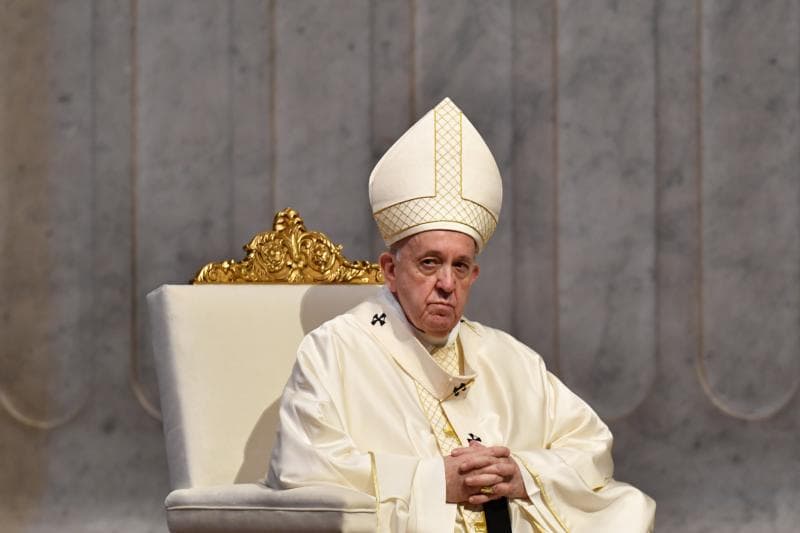LEICESTER, United Kingdom – In a reflection offered to BBC Rethink, a series asking how society can change for the better after the COVID-19 crisis, Pope Francis has warned the poor have “become part of the landscape.”
The program aired on the British national broadcaster on Monday morning – with the pope speaking in Spanish with a voiceover provided by the BBC – and was provided by the Vatican for the series, but taken from an interview Francis gave to his biographer Austen Ivereigh in April.
RELATED: Pope says pandemic a chance to ‘see’ the poor and rethink production, consumption
“This coronavirus crisis is affecting us all, rich and poor alike, and putting a spotlight on hypocrisy. I am worried by the hypocrisy of certain political personalities who speak of facing up to the crisis, of the problem of hunger in the world, but who in the meantime manufacture weapons,” the pontiff said. “This is a time to be converted from this kind of functional hypocrisy. It’s a time for integrity. Either we are coherent with our beliefs or we lose everything.”
"We have lost the contemplative dimension and we have to get it back."
Pope Francis (@Pontifex) explains why he sees Covid-19 as a potential turning point in history.
Listen to his full essay and many more from the world's leading thinkers: https://t.co/nch7iMGqN2 pic.twitter.com/tXfnccyHX2— BBC Radio 4 (@BBCRadio4) June 22, 2020
Francis said every crisis contains both danger and opportunity.
“Today I believe we have to slow down our rate of production and consumption and to learn to understand and contemplate the natural world. We need to reconnect with our real surroundings. This is the opportunity for conversion,” he explained.
The pope also said the crisis is a “moment to see the poor.”
“We can’t settle for a welfare policy such as we have for rescued animals. which is how the poor are often treated,” Francis said.
“We disempower the poor. We don’t give them the right to dream of their mothers. They don’t know what affection is, many live on drugs. And to see them can help us to discover the piety, which points towards God and towards our neighbour,” he added.
During the program, the BBC’s Amol Rajan said the pope’s message “argues for a radical recalibration of our priorities, so we think less of ourselves and more of the systems we inhabit whether natural or economic. In that regard it was a call that reaches far beyond Catholicism to something universal: Our capacity to be selfless.”
BBC Rethink is scheduled to present the reflections of over 30 different thinkers, including former U.S. Ambassador to the United Nations Samantha Power and billionaire George Soros.
This story has been corrected. Powers was the U.S. Ambassador to the United Nations, not the Holy See.
Follow Charles Collins on Twitter: @CharlesinRome











